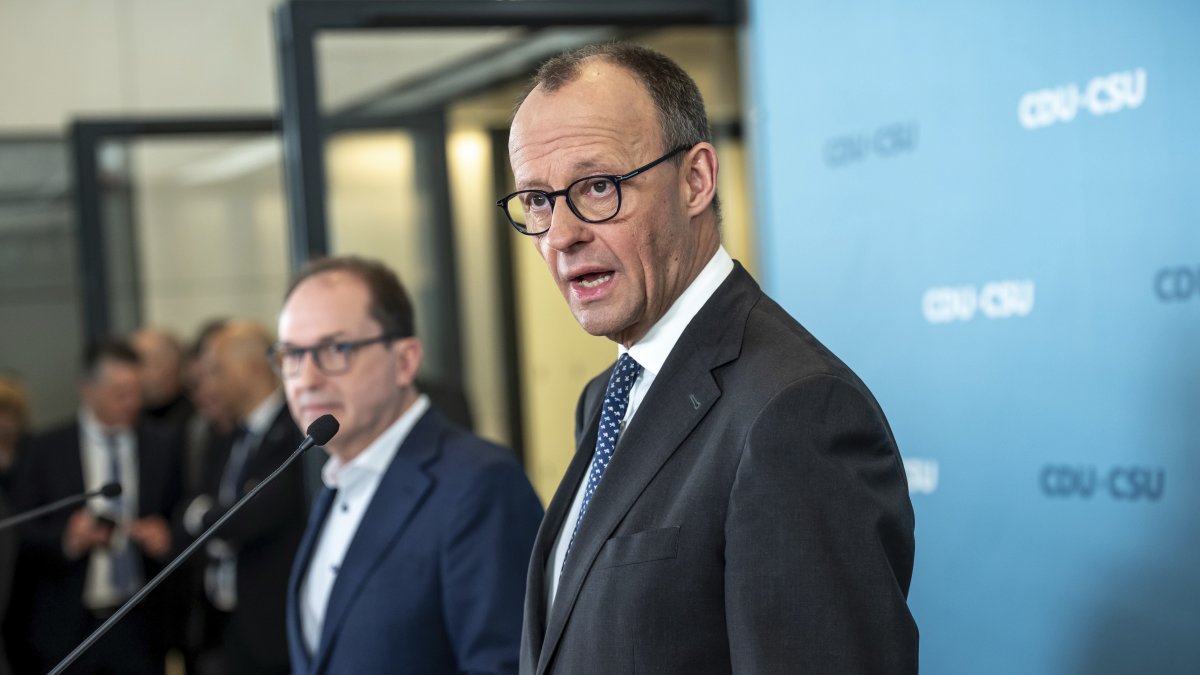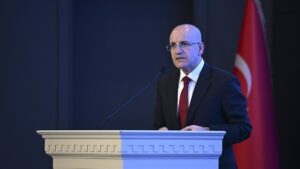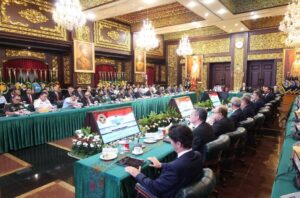German Chancellor-in-waiting Friedrich Merz announced Friday his conservatives had struck a deal with the Greens on massively boosting defense and infrastructure spending, paving the way for the plan’s approval in parliament.
Merz told reporters that the deal was “a clear message to our partners and friends but also to the enemies of our freedom: we are able to defend ourselves,” adding: “Germany is back.”
The plan jointly put forward by Merz’s center-right CDU and the center-left Social Democrats (SPD), who are currently in coalition talks, would see defense spending exempted from the country’s constitutionally enshrined debt brake when it exceeds 1% of gross domestic product (GDP).
Fraying Europe-U.S. ties under President Donald Trump and his pivot away from supporting Ukraine have fueled calls for Germany, long dependent on the U.S. security umbrella, to quickly ramp up military funding amid signs of increasing Russian aggression.
The government-in-waiting also plans to set up a 500-billion-euro ($545-billion) special fund for infrastructure spending.
Friday’s deal follows several days of often acrimonious debate during which the Greens had threatened to withhold their support, citing insufficient action on the environment in the spending plan.
The Green party’s votes are needed to reach the two-thirds majority in parliament required to modify the debt brake. A vote on the plans is due on Tuesday.
Merz – whose conservatives came first in February elections – said that after talks with the Greens it had been agreed that 100 billion euros of the infrastructure fund would be dedicated to climate protection measures.
‘Alarming situation’
On Thursday Merz had urged a quick agreement on the issue during a fiery parliamentary debate.
When it came to the armed forces in particular, “any further delay” in boosting spending “would be irresponsible,” he said.
“In view of the alarming security situation in Europe in every respect and the growing economic challenges in our country, far-reaching decisions … cannot be postponed any longer,” Merz told lawmakers.
Stressing that action needed to be taken quickly, SPD parliamentary leader Lars Klingbeil told MPs: “When history knocks at our door, then we must open it – we don’t know if we will have a second chance.”
The incoming government is keen to get the spending plans approved before the newly elected parliament convenes at the end of this month.
In the new chamber the far-right Alternative for Germany (AfD) and the far-left Die Linke, who both oppose the plans, would have the numbers necessary to block them.
Both parties have filed legal challenges against the spending plans at the constitutional court, arguing there will be insufficient time for consultations.




















































Be First to Comment